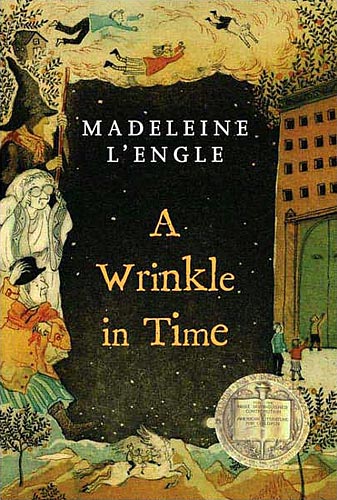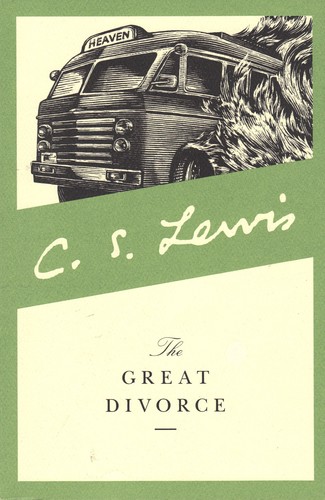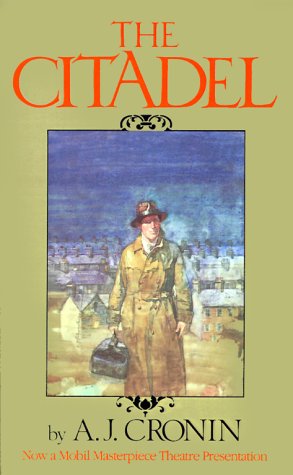Some fellow novel lovers would like to share some of their favorite reads with you! If you are interested in writing a review, please leave a comment!
Meaghen Hale suggests A Wrinkle in Time by Madeleine L’Engle
A Wrinkle in Time is one of my best-loved books. Because it is required reading in elementary school in Canada, I am always surprised to meet people who have not read it. The story centers on a family whose father, a scientist, has gone missing. Two of his children, Meg and Charles Wallace, begin to unravel the mystery of his disappearance—and discover embodied stars, tesseracts, the fifth dimension, and a strange planet where everything moves to the rhythm of an invisible, hypnotic heartbeat. They find their father imprisoned on this planet and must face the origin of that evil heartbeat—a being called “It”—to save him. The theme of the book was eloquently expressed by L’Engle: “Hate may seem to win for a while, but love is stronger than hate.”[1] She began writing A Wrinkle in Time after reading Einstein and discovering particle physics and quantum mechanics. I find it interesting that she saw a unity between science and her Christian faith. “I’ve always seen the discoveries of science as a way of finding out more about God, more about the universe.”[2] L’Engle wrote over sixty books, married and had three children, started a writer’s workshop in New York, wrote poetry, and loved spending time with people of all ages. She died on September 6, 2007.
Meaghen Hale is managing editor of Catholic Insight (you can read an article she wrote on The Year of Faith in Nazareth here) and teaches literature courses through WISDOM Home Schooling. She is spending the summer of 2014 studying screenwriting at Act One in Los Angeles.
Megan Bless loves C.S. Lewis’ The Great Divorce
I was an insatiable reader as a young girl. My parents would come into my room at all hours of the morning telling me that I was up way too late. I’d beg for one more chapter…on and on it went. I devoured Frank Peretti and Mary Higgins-Clark novels growing up, and got into G. K. Chesterton and C. S. Lewis as an adult. I’ve enjoyed Russian literature (most especially The Brothers Karamazov) and Evelyn Waugh’s classic, Brideshead Revisited. When asked to write a brief post on a favorite novel, I got the most excited about addressing C. S. Lewis’ brilliant work, The Great Divorce. It’s edgy. It’s modern. It’s a tale as old as time. It convicts the heart. It comforts the soul. Its message transcends the dreamlike state the Narrator is in to have startlingly real relevance to everyday life, and the reader will inevitably recognize himself in various characters throughout. It’s a wake-up call in the form of a novel: you can’t divorce actions from consequences, and you can’t divorce life from death.
The Narrator goes unnamed (perhaps to encourage the reader to insert himself into the story and “experience” the dream firsthand). The novel opens in an unfamiliar territory – a “Grey Town”, a city devoid of joy or hope. The Narrator converses with a number of souls, some of whom have reached Heaven, and some who are in the Grey Town, either as a journey to Heaven (Purgatory), or as a final destination (Hell). Lewis takes a page from Dante’s Divine Comedy and assigns the Narrator a Teacher guide, and through him learns from the people he encounters. While there are a number of excellent themes contained in the novel, one especially stands out to me: Forgiveness and Salvation.
In a powerful scene, The Narrator and his Teacher observe a mighty Angel persuading a Ghost to reject his lifelong sin of lust, so mercilessly plaguing him in his journey through the Grey Town. The beauty in this story is something to which we can all relate – Christ has the power to redeem all. He can take our most disgusting struggles and most shameful sins and transform them – and us – to point us back toward Him. He saves us from ourselves if only we let him. The Narrator’s Teacher explains the dichotomy between the Saved and the Damned, between those that cling to Love Himself, or to these disordered loves, which is usually a love of self. It becomes exceedingly clear that Christ is the answer. In Him lies our fulfillment, our happiness, our salvation, our hope: We are created “for infinite happiness. You can step out into it at any moment.” The journey will not be without pain on our part, without rejecting our own lifelong sins, but it is through choosing Christ over ourselves that we can dare to be confident of forgiveness of our sins and eternal salvation. A beautiful Lady – I would venture to guess she is the Blessed Mother – expresses a sentiment so beautiful and power that I must close with it: “I am full now, not empty. I am in Love Himself, not lonely. … We shall have no need for one another now; we can begin to love truly.”
Megan Bless is an alumna of Ave Maria University (Music, class of 2010) and a former employee at Ignatius Press. She will be attending California State University, Fullerton in the fall to pursue a Masters of Science in Counseling.
Catherine Bauer is a fan of The Citadel by A. J. Cronin
In The Citadel, A.J. Cronin spins a tale revolving around false pride, over-weaning ambition, and the consequences thereof.. A young doctor navigates his way through the poorest of villages to the richest of practices, slowly but surely being corrupted and polluted by the thought of easy money. Initially eager to improve the lives of his destitute patients, Andrew Manson finds the life of an affluent doctor a beguiling idea, and he begins to drift away from his sound ideals and strong morals. In the end, Manson finds himself paying for his sins in a tragic way. This loss and regaining of faith informs all of Cronin’s novels, no less so in The Citadel.
Cronin himself was a doctor turned author turned Hollywood screenwriter. He lost his Catholic faith while in medical school. Later on, while working in poor, faith-filled communities, he realized that there must be something more: the deep religious faith of the people he worked among made him start to wonder whether “the compass of existence held more than my text-books had revealed, more than I had ever dreamed of. In short I lost my superiority, and this, though I was not then aware of it, is the first step towards finding God.”
In a world where materialism and instant gratification reign supreme, Cronin’s novels are an uncomfortable yet soul-stirring look into the complete emptiness to where such a life can lead. Ultimately, Cronin makes it clear that “If we consider the physical universe,. . . we cannot escape the notion of a primary Creator. Accept evolution with its fossils and elementary species, its scientific doctrine of natural causes. And still you are confronted with the same mystery, primary and profound. Ex nihilo nihil, as the Latin tag of our schooldays has it: nothing can come of nothing.” Despite his own very emphatic beliefs on this subject, Cronin avoids the overbearing pretentiousness of preachiness, and instead lets the reader come to his or her own conclusions as to the fate of the character’s soul. As such, reading any Cronin novel, especially The Citadel, is like reading the story of your own journey through life, wherein we are confronted with the fallenness of mankind and the utter impossibility it is to achieve happiness on your own merits and redemption without God.
Catherine Bauer is currently living in Los Angeles pursuing a career in entertainment production and writing. She has a BA from Ave Maria University in Music and a Masters from Boston University in Criminal Justice. Catherine also writes for Catholic Insight and her own blog reviewing television series.









Leave a Reply